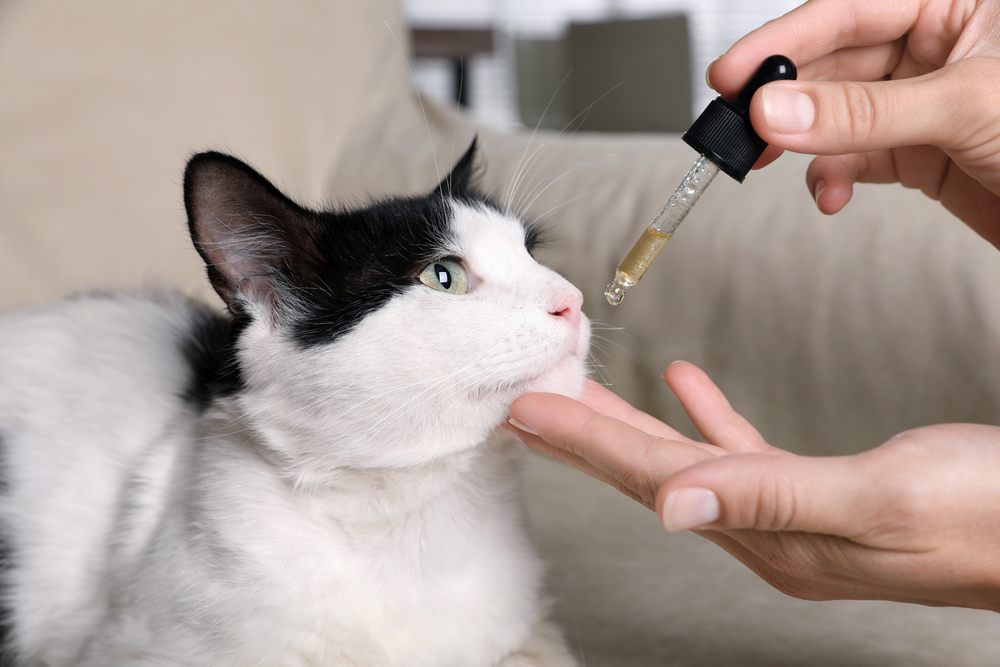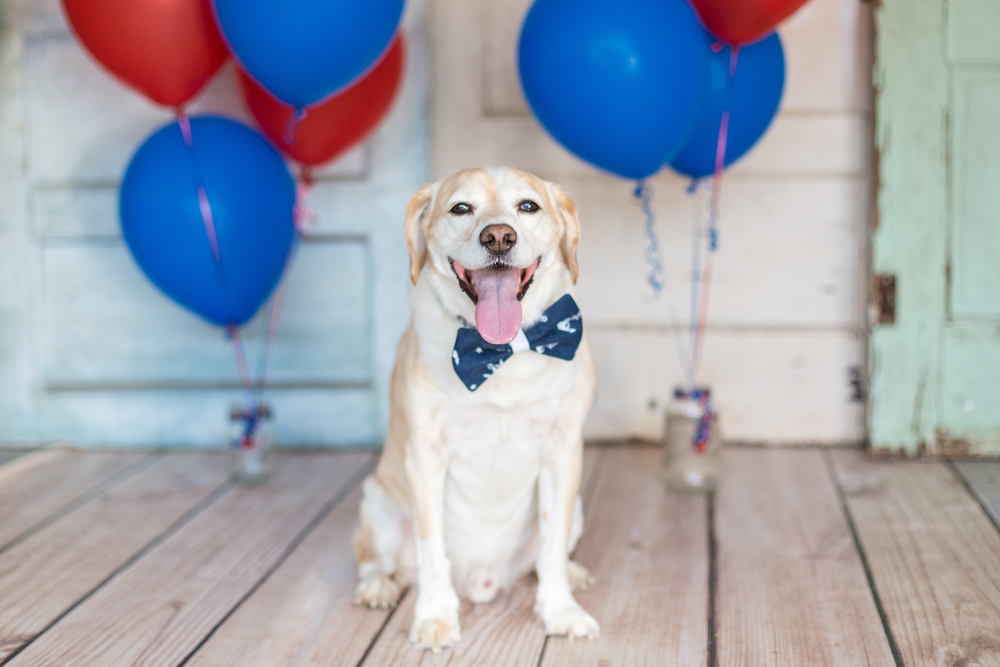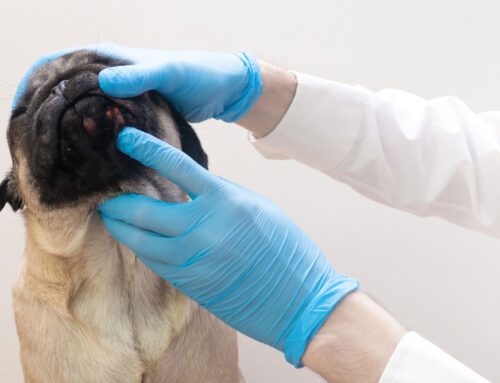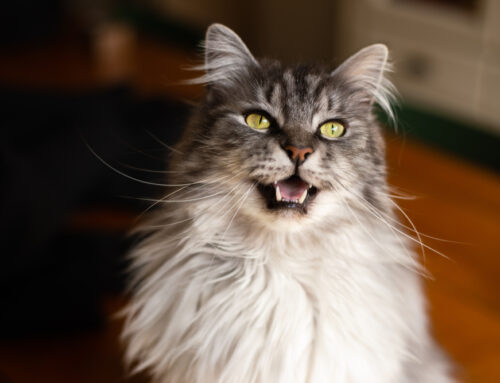Everyone loves July Fourth, but the holiday poses many hazards for your pet. Our team at Palisades Veterinary Hospital wants to help with advice that will keep your four-legged friend safe during the festivities.
Ensure your pet doesn’t go astray
Many pets find fireworks frightening, and pet shelters cite July 5th as their busiest day because they take in so many terrified pets. Don’t let your pet be left in a shelter the day after your July Fourth celebration. Tips include:
- Leave your pet at home — If your pet isn’t comfortable around crowds, or they are scared by loud noises, you should probably leave them at home. If they become scared or anxious at a celebration, they could bolt from you and become lost.
- Create a safe zone for your pet — Designate an area in your home as your pet’s safe zone where they can escape if they feel overwhelmed. You can use their crate, a small interior room, or a closet. Give them toys and treats to keep them occupied, and leave music or the television playing to mask outdoor noise.
- Keep your pet on a leash — If you do take your pet with you, ensure you keep them leashed, and monitor them closely for fear or anxiety signs.
- Microchip your pet — Despite your best efforts, your pet may get past your defenses. Micropping is the best way to help ensure you are reunited if they go missing. In addition, your pet should always wear a collar and tags with your current contact information.
Keep your pet away from the party fare
Pets have sensitive gastrointestinal tracts, and any dietary change can cause signs such as diarrhea, vomiting, and excessive gas. Some foods are particularly dangerous for pets, including:
- High fat foods — Many dishes served at a July Fourth celebration are high in fat, and these foods can trigger pancreatitis, a painful and potentially life-threatening condition in pets.
- Chicken wings — Chicken wings and other foods with bones are dangerous for pets, because the bones become brittle when cooked, and can easily splinter, injuring your pet’s mouth and gastrointestinal tract.
- Grapes — No July Fourth celebration is complete without fruit salad, but ensure your pet doesn’t partake. Grapes, for example, cause kidney failure in pets.
- Chocolate — Everyone likes a sweet treat on a hot summer day, but chocolate contains caffeine and theobromine that cause central nervous system stimulation in pets.
- Alcohol — Many party goers enjoy an adult beverage, but pets are especially susceptible to alcohol. A small amount can cause concerning health issues.
Ensure your pet doesn’t overheat
Pets don’t sweat like humans, and are at higher risk for heatstroke. A pet’s normal temperature is 101 to 102.5 degrees, and excessive heat—when their temperature is higher than 106 degrees—can cause severe inflammation throughout their body. Heatstroke is considered a veterinary emergency, and your pet will need immediate care. Tips to prevent your pet from overheating include:
- Never leave them in a parked car — Temperatures inside parked vehicles rise to dangerous levels quickly, and parking in a shady area or keeping the windows cracked doesn’t prevent the risk.
- Bring water — If your pet accompanies you to a celebration, bring water and a water bowl and let them drink frequently.
- Avoid exercise — Your pet may be excited by the festivities and want to run around, but overactivity could cause heatstroke. Keep them as calm and quiet as possible.
- Keep them in a shady area — Don’t let them stay in the sun too long. If possible, keep them in a shady spot, and if not, take frequent breaks in cool, well-ventilated areas.
- Know the signs — Heatstroke signs include excessive panting, drooling, lethargy, bright red mucous membranes, diarrhea, and collapse. If your pet exhibits any of these signs, start cooling them with lukewarm water, and get them to a veterinarian as soon as possible.
Prepare your pet for the fireworks

If you know your pet is noise-averse to fireworks, you can prepare them for the July Fourth celebration. Steps include:
- Desensitize your pet to the firework noise — Find a fireworks recording that causes your pet to react, and play the track at a low enough level that they remain calm. Gradually increase the volume over several sessions, immediately lowering the volume if they become upset. Then, start the next session at the lower volume.
- Counter condition your pet — While the fireworks recording is playing, create a positive situation to the noise by feeding them, playing a favorite game, or petting them.
- Practice with your pet — Take your pet to a fireworks display, parking in an area where you can easily leave if they get upset. Leave the radio on and the windows up when the display starts. Feed your pet treats and offer praise when the show begins, and turn off the radio if they remain calm. If they still don’t react, lower the windows. Leave immediately if they become anxious or afraid.
- Medicate your pet — Noise aversion affects some pets so significantly that medication is the only way to manage their fear. Our veterinary professionals at Palisades Veterinary Hospital will help you determine if your pet needs drugs.
Your July Fourth can be fun and enjoyable for your pet if you take a few measures to protect them during the festivities. If you would like to discuss medicating your pet for the fireworks displays, contact our American Animal Hospital Association (AAHA)-accredited team at Palisades Veterinary Hospital, so we can keep them fear free during the patriotic holiday.







Leave A Comment